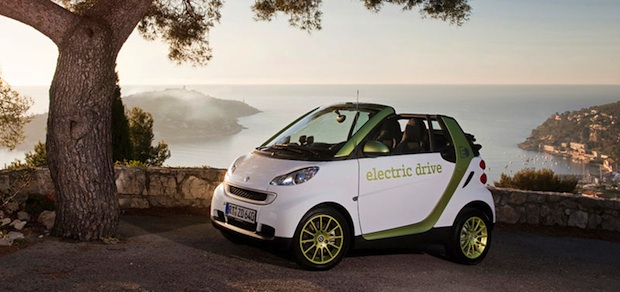Photo: Code Arachnid
I’ll spare you the environmental lecture—Just imagine your life with out a car payment. Sounds pretty nice, right? Read on to see how you can make it a reality. Even better: you don’t have to wear spandex biking shorts.
Honestly assess the cost of a car.
Of course your ride really costs a lot more than the monthly payment automatically usurped from your checking account. AAA puts out a nifty little publication yearly (http://www.aaaexchange.com/Assets/Files/200948913570.DrivingCosts2009.pdf), and has been doing so since 1950, that helps you assess the true value of a car, factoring in fuel, maintenance, tires, insurance—all of those things that seem to sneak up and empty out your savings account. (The average total cost per year is around $8,000).
If you are more digital than analog, try using this calculator, too: http://www.commutesolutions.org/calc.htm
What most avid bikers and public transit commuters say, though, is that it is a quality-of-life issue more than a financial one—though the money saved doesn’t hurt. A heart-pumping bike ride or subway ride with a paper (minus the crushing rush hour commute in a dense place like New York) simply makes for a better start to the day than inhaling exhaust fumes from the car in front of you.
Another thought: if you are exercising by commuting, you could also ditch the gym membership, at least according to one study about “active commuting”. Basically the study showed that people who walk or bike to work are less likely to be obese and have healthier blood pressure. (The researchers said more study was needed in the field, and that working out on top of an active commute is even better than the commute alone).
Find a bike-friendly city.
Most of the protests to going car-free have to do with hometown: It seems to make sense to be carfree in bigger cities with the cache for bike lanes and congestion that demands public transportation. But, surprisingly, the League of American Bicyclists conducted a comprehensive study of American cities, small and large, (http://www.bikeleague.org/programs/bicyclefriendlyamerica/pdfs/bfc_master_list_web.pdf), and square-footage, sheer size, doesn’t have much to do with bikeability. The #1 bike-friendly city in America, Davis, California is just 10.5 square miles, while the #2 bike-friendly city, Portland, Oregon, is 134.3 miles. Cedar Falls, Iowa? Tulsa, Oklahoma? Probably not at the first to come to mind when it comes to living without a car, but they’ve both recently made the bike-friendly list.
Population is also not a factor. Davis had 62,593 people in the 2008 Census, while Portland had 557,706. New York City, one the League’s list but not incredibly bike friendly, clocked in at over 8 million.
Communities are also pushing hard to promote biking, so check out the tax-dollar and charitable programs in your area. In Champaign, Illinois the Bike Project (thebikeproject.org) fixes up old clunkers and sells them on the cheap. They also offer a free class to teach people how to fix their own bikes to keep them on the road. A bike sharing program has started up in D.C. Public bikes are locked up in high traffic areas around the city. Swipe your card to unlock one, cruise for as long as your like, then drop it off at any of the docking points and you will be charged by the hour.
Choose your neighborhood wisely.
Buying or renting within a few miles of work may seem far fetched to some people, especially those in sprawling Sunbelt cities like Atlanta or Houston, but new zoning laws are looking to reverse that trend, for better or worse. Tax breaks are given in Atlanta and many other cities for new developments that are “mixed use,” meaning that homes and businesses are under one roof.
Also, a study published in August called Walk the Walk (http://blog.walkscore.com/wp-content/uploads/2009/08/WalkingTheWalk_CEOsforCities.pdf) shows that the so-called walkability of a city increases home values. Walkability here is defined by the social and shopping destinations that you don’t need a car to get to. The study ultimately found that, “Houses with the above-average levels of walkability command a premium of about $4,000 to $34,000 over houses with just average levels of walkability in the typical metropolitan areas studied”.
Consider going half-car.
No matter how many pains you go to trying to find the right place to work and live, there are going to be things that you don’t want to lug on the bike or bus, like, say, a Christmas tree or your weekly load of groceries. Clever car sharing companies, like Zipcar, are looking to capitalize on exactly that need for carless people. (http://money.cnn.com/2009/08/26/news/companies/zipcar_car_rentals.fortune/)
The idea is elegantly simple: Become a Zipcar member. When you need a ride, use an iPhone app or computer to find that closest Zipcar to you, which you reserve online. When you approach the car, touch your membership card to the window and the doors unlock automatically. The keys are inside, as is a gas card, and you are charged one flat rate per hour, about $8, depending on the city. Park the car in your hood and the process starts over.
As of January 1, 2009, Susan Sheehan of the University of California at Berkeley found that 24 car sharing programs in the United States has 309,437 members, definitely qualifying it as a trend that extends beyond one brilliant business idea. (In Canada, 15 organizations had 46,802 members).






